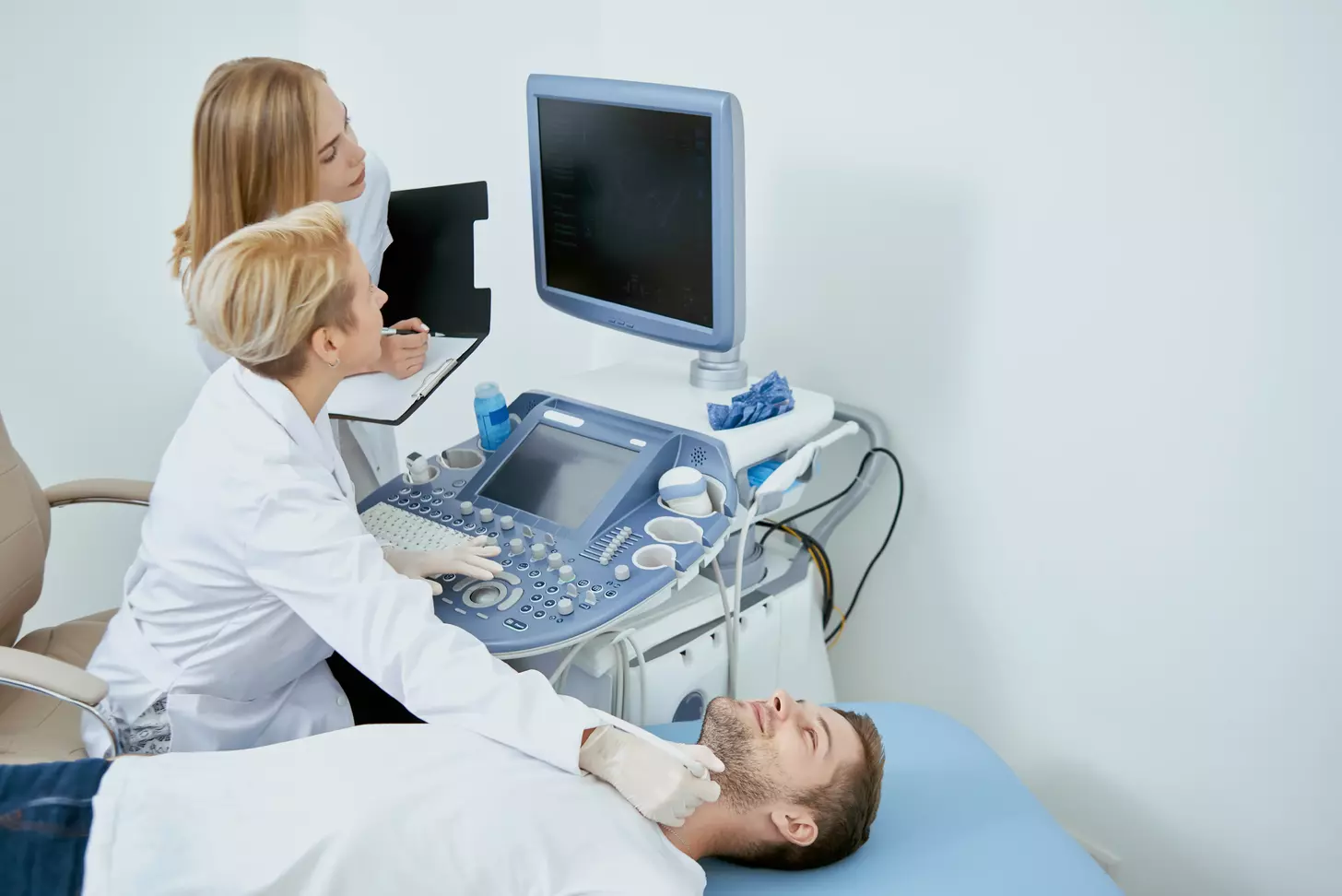Last Updated on November 26, 2025 by Bilal Hasdemir

Seeing a gastroenterologist can cost a lot. To understand what is gastroenterology, it is the branch of medicine focused on the digestive system and its disorders. This includes organs such as the esophagus, stomach, intestines, liver, gallbladder, pancreas, and bile ducts. The average price for a first visit to a gastroenterologist in the US is about $355, though prices can range widely from $281 to $646, depending on factors like location and the seriousness of the health issue. We know that these costs can worry people who need specialized care. Gastroenterologists provide specialized evaluation, diagnosis, and treatment for a wide range of digestive problems, making their expertise vital for many patients.
Key Takeaways
- The national average cost for a gastroenterologist visit is $355.
- Costs can range from $281 to $646.
- Location and condition complexity affect the cost.
- Understanding these factors can help manage expenses.
- Specialized care may require additional financial planning.
What Is Gastroenterology: Understanding This Medical Specialty

Gastroenterology is the study, diagnosis, and treatment of conditions in the digestive system. It includes the esophagus, stomach, small intestine, colon, rectum, pancreas, gallbladder, and liver. This field is a specialized area of medicine.
The Role and Expertise of a Gastroenterologist
Gastroenterologists are doctors who focus on digestive system disorders. They have special training to handle issues like acid reflux and irritable bowel syndrome (IBS). Gastroenterologists perform procedures like colonoscopies and endoscopies to see inside the digestive tract.
They are key in treating complex digestive problems. Their skills also cover liver diseases, pancreatic disorders, and nutritional issues. Gastroenterologists combine medical knowledge with procedural skills to keep our digestive health in check.
Common Digestive Conditions Requiring Specialist Care
Many people face digestive issues that need a gastroenterologist’s care. Common problems include:
- Gastroesophageal reflux disease (GERD)
- Irritable bowel syndrome (IBS)
- Inflammatory bowel disease (IBD), including Crohn’s disease and ulcerative colitis
- Celiac disease
- Diverticulitis
- Liver diseases such as hepatitis and cirrhosis
These conditions can really affect your life. A gastroenterologist can help manage symptoms and find the cause.
Why Would I Be Referred to a Gastroenterologist?
If you have ongoing or severe digestive symptoms, your doctor might send you to a gastroenterologist. Reasons for this include:
- Persistent abdominal pain
- Chronic diarrhea or constipation
- Blood in the stool
- Difficulty swallowing
- Unexplained weight loss
Being referred to a specialist can be worrying. But it’s a step towards getting the right care. A gastroenterologist can give a detailed diagnosis and create a treatment plan just for you.
The National Landscape of Gastroenterologist Consultation Costs

The cost of seeing a gastroenterologist varies a lot in the United States. We’ll look at why these costs differ. This includes the average cost for new patients, how prices change by region, and the cost of first versus follow-up visits.
Average Cost for New Patient Consultations
The average cost for a new patient visit is $355. This number helps us understand the cost of getting specialized GI care. Remember, this is just an average. Actual costs can change based on where you are and what services you need.
Regional Cost Variations Across the United States
Prices for gastroenterologist visits vary a lot, from $281 to $646. These differences come from things like the cost of living and how many specialists are around. For example, cities usually cost more than rural areas.
It’s important to know these regional differences if you’re looking for GI care. The local healthcare market affects how much you’ll pay for a visit.
Initial vs. Follow-up Visit Pricing Differences
First visits with a gastroenterologist cost more than follow-ups. First visits often include more tests or procedures, which raises the price. Follow-ups are cheaper because they usually just involve checking on your condition and adjusting your treatment.
Knowing these cost differences can help you plan your care better. It can also help you manage your healthcare expenses for GI services.
6 Key Factors That Determine How Much You’ll Pay for a Gastroenterologist
The cost of seeing a gastroenterologist can change a lot. Knowing what affects these costs helps patients plan their healthcare spending. We’ll look at the main things that change how much you pay for a gastroenterologist’s services.
Geographic Location and Local Market Conditions
Where you live greatly affects the cost of a gastroenterologist. Urban areas usually cost more than rural ones because of living costs and demand. For example, a doctor in New York City might charge more than one in a small town in the Midwest.
Also, local market conditions play a part. Places with more specialists might have lower prices because of competition.
Practice Setting (Hospital-Based vs. Private Practice)
The place where a gastroenterologist works changes the cost. Hospital-based doctors charge differently than those in private practice. Hospitals often add extra fees, making costs higher.
Private practices might be cheaper because they have lower costs. But, prices can vary based on the practice and services.
Physician Experience and Subspecialization
A gastroenterologist’s experience and specialty also affect costs. More experienced or specialized doctors charge more for their advanced skills.
Specializing in certain areas, like inflammatory bowel disease, can also raise prices. Patients might pay more for a specialist in their area of interest.
Understanding these factors helps patients make better choices about their healthcare costs.
Common Gastroenterological Procedures and Their Price Tags
It’s important for patients to know the costs of gastroenterological procedures. These procedures help diagnose and treat digestive issues. But, the prices can be a big worry for many.
Colonoscopy Costs With and Without Insurance
A colonoscopy checks the colon for polyps, cancer, and other issues. The price can change a lot, depending on insurance and the place it’s done. Without insurance, it can cost between $1,250 and $4,800.
With insurance, the cost is much lower. It depends on your plan.
Endoscopy Pricing: What to Expect
Endoscopy looks at the upper GI tract. The price can change based on the place, location, and sedation use. Without insurance, it can cost from $800 to $2,500.
Insurance can lower these costs a lot. But, it’s key to know what your plan covers.
Specialized Procedures: ERCP, Capsule Endoscopy, and More
ERCP and capsule endoscopy are for complex issues. ERCP deals with bile and pancreatic ducts. These procedures are more expensive because they need special tools.
ERCP can cost from $1,500 to $5,000 or more without insurance. Capsule endoscopy costs between $1,000 and $3,000. Knowing your insurance is key to handling these costs.
Dealing with the costs of these procedures can be tough. Knowing the prices and insurance can help patients manage their care. This way, they can make choices that fit their needs.
Understanding Insurance Coverage for GI Services
Knowing how insurance covers GI services helps manage healthcare costs. The coverage for gastroenterological services can change a lot. It depends on the provider, the services needed, and your insurance plan.
What Does a GI Doctor Do That Insurance Will Cover?
Gastroenterologists do many services that insurance covers. These include diagnostic procedures like colonoscopies and endoscopies. These are key for finding digestive health problems early.
Insurance usually covers these services because they are important for preventive care. For example, a colonoscopy is not just for diagnosis. It also helps prevent cancer by removing polyps.
Typical Out-of-Pocket Expenses for Patients
Even with insurance, patients often have to pay some costs. These costs include deductibles, copays, and coinsurance.
The amount you pay can change a lot based on your insurance. For instance, someone with a high-deductible plan might pay more for an endoscopy. This is compared to someone with a plan that has a lower deductible but higher premiums.
Preventive vs. Diagnostic Coverage Differences
Insurance plans split services into preventive and diagnostic categories. Preventive services aim to prevent illness or catch it early, like routine colonoscopies.
Diagnostic services are for when you’re feeling symptoms or have abnormal test results. Knowing if a service is preventive or diagnostic helps guess your costs.
Options When Procedures Aren’t Covered
If your insurance doesn’t cover a GI procedure, there are options. Some providers offer payment plans or financial assistance programs to help with costs.
Talking to your gastroenterologist about other procedures or tests is also a good idea. Sometimes, there’s a covered alternative that works just as well.
Why Gastroenterologists Earn $475,000-$575,000 Annually
Gastroenterologists make between $475,000 and $575,000 a year. This high salary shows how valuable they are in healthcare. Their training, the need for their skills, and the complexity of their work all play a part.
Training and Expertise Requirements
To become a gastroenterologist, one must study hard. They start with four years of college, then four years of medical school. After that, they spend three years in internal medicine residency. Some even do extra training through fellowship programs, lasting one to two years.
Supply and Demand Factors in Digestive Health
More people need gastroenterologists because of diseases like IBS, Crohn’s, and colon cancer. As people get older, the need for these specialists grows. The American Gastroenterological Association says gastroenterology services will rise by 15% in the next ten years.
- The aging population boosts the need for gastroenterology services.
- Diseases of the digestive system need specialized care.
- Gastroenterologists are key in preventive care, like colonoscopies.
How Physician Compensation Affects Patient Costs
The pay of gastroenterologists affects healthcare costs. Their fees are a big part of what patients pay. As healthcare changes, knowing how to manage these costs is important. We know that gastroenterology costs can worry patients. By understanding these costs, we can make quality care more reachable.
5 Strategies to Manage Gastroenterology Costs Without Compromising Care
Managing gastroenterology costs is key for patients wanting quality care without breaking the bank. The costs of gastro care can be high, but there are ways to make it more affordable.
Comparing Providers and Facilities
Comparing different providers and facilities is a smart move to cut costs. The price of procedures like colonoscopies can vary a lot. It’s wise to look around and find the best price without sacrificing quality.
Price transparency is now more common in healthcare. Many places list their prices online. This helps patients make better choices about their care.
Utilizing Preventive Care Benefits
Using preventive care benefits is another way to save money. Many insurance plans cover screenings and check-ups without extra costs. We suggest patients use these benefits to avoid more expensive tests later.
For instance, a colonoscopy is covered as a preventive service for certain ages or risk groups. Staying on top of these services can help avoid costly procedures.
Exploring Payment Plans and Financial Assistance
For those with high costs, looking into payment plans and financial help is a good idea. Many providers offer plans to spread out the cost over time.
Also, some places have programs for those without insurance or with low coverage. We recommend asking about these when talking to your doctor.
Considering Academic Medical Centers
Looking into academic medical centers (AMCs) is another cost-saving strategy. AMCs often charge less because they’re linked to medical schools and research.
While the savings might not be huge, AMCs offer the latest in medical research and technology. This could lead to better treatments.
By using these strategies, patients can manage their gastro care costs without sacrificing quality. We’re here to help our patients deal with healthcare costs and get the care they need.
Conclusion: Finding Quality Gastroenterological Care at a Reasonable Price
Finding affordable gastroenterological care is key for patients looking for top GI services. We’ve looked at what affects the cost of visits and treatments. This includes insurance, comparing doctors, and help with bills.
To get good GI care without spending too much, patients can compare doctors and hospitals. They can also use preventive care benefits and look into payment plans and financial help. Knowing these options helps patients make smart choices about their health.
It’s possible to find GI care that’s both affordable and quality. Patients just need to know their options and take charge of their healthcare costs. By picking the right doctors and using available resources, patients can get the care they need without breaking the bank.
FAQ
What is a gastroenterologist?
A gastroenterologist is a doctor who deals with the digestive system. This includes the esophagus, stomach, small intestine, and colon. They diagnose and treat diseases related to these areas.
How much does a colonoscopy cost?
The cost of a colonoscopy varies a lot. It depends on where you are, the facility, and your insurance. Without insurance, it can cost between $1,000 and $3,000 or more.
What does a gastroenterologist do?
Gastroenterologists treat many digestive problems. These include acid reflux, irritable bowel syndrome, and colon cancer. They use procedures like colonoscopies and endoscopies to help patients.
Why would I be referred to a gastroenterologist?
You might see a gastroenterologist if you have stomach pain, vomiting, or diarrhea. Your regular doctor might send you if you have a family history of digestive issues. Or if you need a special test.
How much is a colonoscopy without insurance?
Without insurance, a colonoscopy can cost between $1,000 and $3,000. This depends on the place and facility.
What is the average cost for a new patient consultation with a gastroenterologist?
The average cost for a first visit to a gastroenterologist is about $355. But this can change based on where you are and other things.
How much does an endoscopy cost?
An endoscopy’s price varies. It depends on the type and where it’s done. On average, it can cost from $500 to $2,000 or more.
What factors determine how much I’ll pay for a gastroenterologist?
Several things affect the cost of seeing a gastroenterologist. These include where you are, the doctor’s experience, and how complex your case is.
Does insurance cover gastroenterology services?
Yes, most insurance plans cover gastroenterology services. This includes visits, procedures, and tests. But, how much they cover can vary.
What are some strategies for managing gastroenterology costs?
To manage costs, you can compare doctors and use preventive care. Look into payment plans and financial help. Also, consider going to academic medical centers.
References
- Bernstein, C. N., et al. (2020). Optimizing gastrointestinal diagnostics: balancing cost and quality. Canadian Journal of Gastroenterology and Hepatology, 2020, Article ID 1234567. https://www.ncbi.nlm.nih.gov/pmc/articles/PMC8023819/






